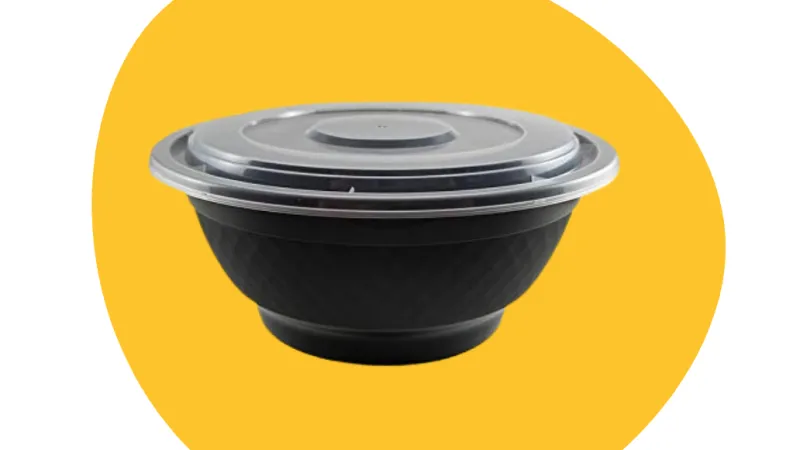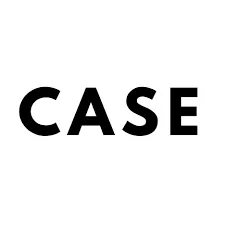CASE
Landfill? No, thanks! CASE provides a service which diverts 100% of plastic collected from landfill.

Project Description


What began as a solo project to save "one container at a time", has turned into over 200,000+ containers saved from landfill.
Why we exist?
Maybe you've heard the 9% of what you put in the blue bin actually get's recycled stat (canada.gov). Or maybe you found out that Toronto doesn't recycle black plastic because of the conveyor belt colour and you're thinking "why the f* don't they just change the conveyor belt then?"
Well, truthfully, those are not the correct questions we should be asking ourselves. Instead we should ask why the f* are recycling companies or *cough* really large players in the market, making so much cash, and yet so much of what we throw away, is quite literally just thrown away.
Recycling is a business, like any other business in society, it is in the business of making money. How does a business do well? It will cuts cost and/or increases prices to make even MORE money ... and so on and so on, you get it.
Well, the economics of recycling are wack. Think about. There are #7 different numbers and only #1, #2 and #5 are the ones that really have a market for them in the post-consumer plastics world. Yet, we are told to throw all the numbers in the recycling bin and that's that. Meanwhile, recycling is a 1:1 process. You can't turn a bunch of different resins/materials (read #'s) all at once. All the materials need to be separated and sorted till you have massive amounts of all the same type. AND here's the kicker, your business still has to make a profit after all those sorting costs. That's right. Waste hauling, i.e. hauling garbage has always come at a price. But recycling programs were designed to pay for themselves. The costs would be earned by the recycling company after they sold the collected materials into the end market. It worked, but it was A LOT of work, and businesses couldn't scale quickly. Recycling contracts became very competitive so in order to stand out, companies bid on the contract by saying they would collect items other companies wouldn't. These companies could then focus on collection and less on recycling, and their service was rated on how well they collected as opposed to how well they recycled. Think about what would p*ss constituents off more, if their garbage/recycling was skipped one week, or if their recycling was picked up but they didn't know what actually happened to it afterwards and soo... well you get the point. This is what is happening.
So, what does blue bin collection look like behind the scenes? Well, the truck that takes your blue bin is called a "waste hauler" they then transport your blue bin materials to a MRF (Material Recycling Facility) who then sorts through it manually and with technology, then the separated materials are taken to another facility and maybe one more before being sold in piles of 1000 tonnes baled (square cubes) to a recycler (the real guy that breaks it down and pelletizes the material) and then resells it. Sometimes there's more parties involved but this is my TLDR version of the process.
Now, my bone to pick is not with a player, but with the system. You know the saying "don't hate the player, hate the game". Well, time to change the game. That's what we need in order to truly combat climate change, we need system change. CASE focuses on how we handle materials in a world conscious of creating more resilient, circular and sustainable supply chains. How do you eat an elephant? Well, one bite at a time of course. So for CASE it was a matter of, what's a plastic material we can focus on, and let's see what happens from there.
Here's how we work:
At CASE, I pick up your takeout containers (which are all#5) sort and sell the good ones back to restaurants for reuse (yey!) and drive the other to our partnered recycler. I am the waste hauler, material recycling facility, storage facility etc. CASE provides a bin/collection service to commercial (offices, universities) and residential businesses (condos, apartments). For the past year we have also had public drop off bins, but it has gotten to the point where they are too popular and expensive to operate. Great problem! But still a problem, and we want to overcome it.
So, what's the money for?
CASE is now crowdfunding in order to raise funds for a 1 year lease on a facility in Toronto. Since launch, just over one year ago now, CASE has been operating out of my dad's garage. We've been unable to allow for public drop offs and have reached a transition point of outgrowing the space. A designated facility will allow CASE to open its doors to the community to perform endless free drop offs and take the business to its next stage of growth!
Cheers,
Cat
Updates
The Campaign FAQs
Frequently Asked Questions:
What types of containers do you accept? We accept black, clear or white, #5 (meaning polypropylene) restaurant takeout containers. To determine if the takeout container that you received from a restaurant is number 5; please check the bottom of the packaging for the number inside the recycling logo.
Who do you provide this collection service to? We provide our collection service as a B2B model, meaning business to business. Our current customers are corporate offices, condos, apartment buildings, and retail stores. To enquire about our bin service please contact [email protected]
What will the crowdfunding money be used for? We will be using the funds to subsidize the cost of a small warehouse for CASE. CASE started in my dad's garage and it's now time for the business to move to the next stage of growth. We've opened this crowdfunding up to the public as we will also have public drop off days at the warehouse, something we've been asked about a lot for personal oversized collections.
Anything else? Please contact me at [email protected]
Just Because I Care
Rewards
Just Because I Care